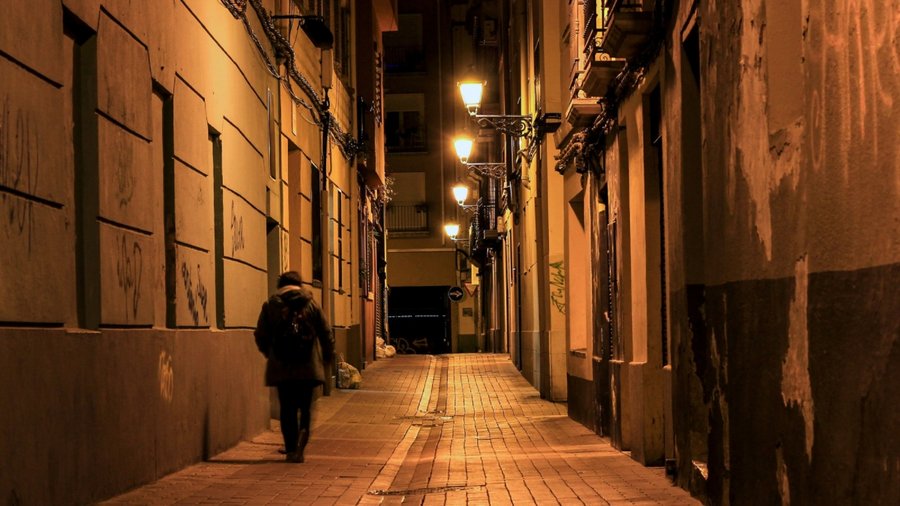Salzburg Global’s 2021 program of the Parks for the Planet Forum opens by exploring loneliness in the city – and how parks can help alleviate it
As the global pandemic forced many countries into lockdowns, social isolation became a widespread experience, even in densely populated cities and communities. Parks and public spaces became places of refuge for many otherwise locked down in their homes – and thus vital in combatting urban loneliness.
The importance of public space in combatting loneliness in cities – which preceded but has been exacerbated by the COVID-19 pandemic – was the theme of the opening online program of the 2021 Parks for the Planet Forum, which is focusing on issues highly relevant to the United Nations’ Urban October initiative. With perspectives from policy, grassroots action and technology, participants heard from panelists about how approaches from each sector are being used to tackle loneliness in urban areas.
Key Takeaways:
- Access to green and public spaces is a fundamental factor in mental and physical wellbeing and staving off isolation through creating a sense of belonging.
- Sustainable community initiatives on public land in urban areas help promote social connection and support networks.
- Marginalization of communities can lead to collective feelings of loneliness, which can be countered by enabling the use of public spaces for these groups.
- Technology, while often a driver in feeling lonely, can and is being harnessed positively to help people access public parks and spaces and improve their wellbeing.
How Public Spaces Are Being Reclaimed in Urban Areas with Grassroots Initiatives
The Earth in Common organization in Edinburgh has helped to reclaim unused public space for locals and establish a sustainable, inter-generational community initiative that actively tackles loneliness.
Through a revival of crofting, a traditional Scottish social system of community-based food production on local land, this creation of a support network in an urban context has successfully connected people from different backgrounds in a public space.
A fostering of collective identity and cooperative spirit has helped to address a multitude of issues in the local community including mental health, hunger, nutrition, lack of a sense of purpose and exercise, and has aided in the creation of a sense of belonging and ownership of the land.
The importance of such access to green spaces and parks in built-up urbanizations has proven to be a crucial factor in the mental and physical wellbeing of residents of urban areas.
The Marginalization of Communities and Groups
Loneliness can be experienced by whole groups and communities, not only by individuals.
In India, where traditional social structures and hierarchies have led to the domination of spaces by privileged groups, a bottom-up policy approach has been adopted as a way of confronting exclusion from public space that leads to isolation.
One way forward to ensure inclusion is to collect data across all communities from urban areas to identify specific and urgent needs, which can then be addressed in public policy planning.
The decriminalization of homosexuality in the country, where the LGBT* community has been historically marginalized, and the fight for advances in law and policy affording the group legal space to assert its rights in public through events and mass gatherings, was another example of how a change in public perceptions of minority groups can lead to a transformation in feelings of loneliness by enabling the use of public space for oppressed groups.
How Technology Can Help To Create Social Connections in Open Spaces
Technology, long-derided for its harmful effects on well-being, can also be a driver for positivity and connection, as demonstrated by a project currently in development in New York.
A new app, being developed by Healing Ninjas, will highlight traditional and non-traditional resources for people in crisis. It will feature maps of green spaces and promote them as gathering places where individuals who are experiencing similar feelings of loneliness can meet and talk.
This webinar on Loneliness was part of Salzburg Global Seminar’s Parks for the Planet Forum’s 2021 program, The Way We Live: Parks, People and Public Spaces. The program is in partnership with AIPH, Diplomatic Courier, The Future City podcast, ICLEI, ICUN, #NatureForAll and World Urban Parks. For more information, please visit: https://www.salzburgglobal.org/multi-year-series/parks
* LGBT: Lesbian, Gay, Bisexual and Transgender. We are using this term as it is currently widely used in human rights conversations on sexual orientation and gender identity in many parts of the world, and we would wish it to be read as inclusive of other cultural concepts, contemporary or historical, to express sexuality and gender, intersex and gender non-conforming identities.


